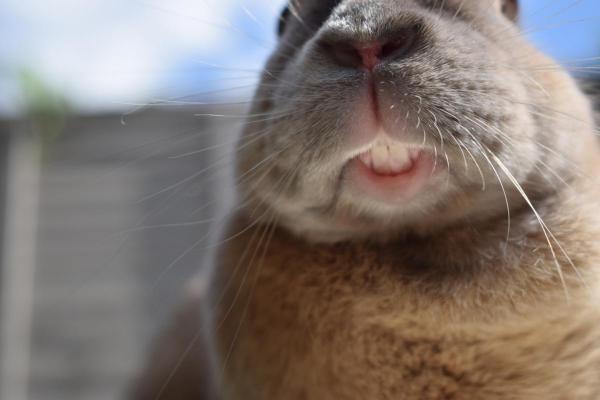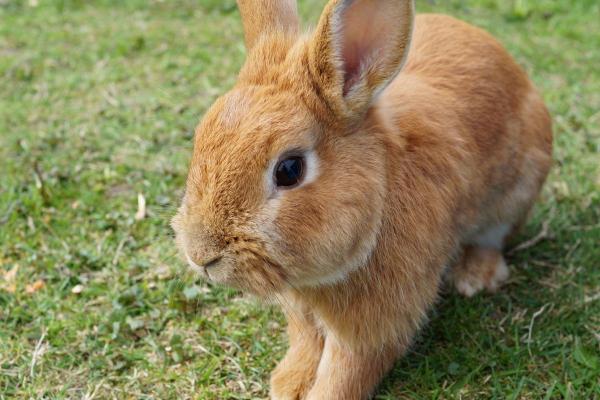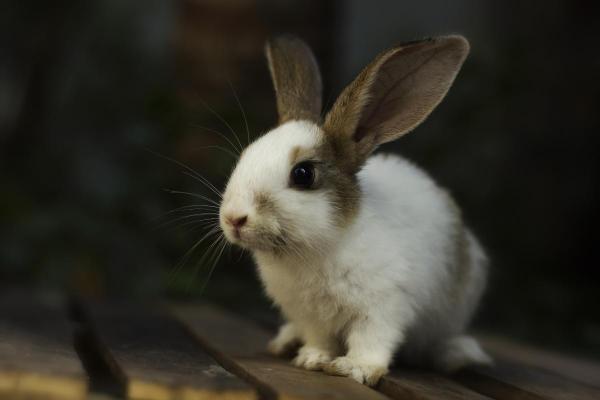Why Is My Bunny Chewing On Nothing?



See files for Rabbits
If you are a rabbit owner, understanding their behavior is crucial. These charming creatures have certain natural habits, from munching on hay to exploring. However, sometimes, you may notice quirky chewing habits, like nibbling on nothing. It's a subtle hint that something might be up, whether it's a health concern, a call for stimulation, or a response to changes.
In this exploration by AnimalWised, we'll discuss common reasons behind unusual chewing habits and offer simple tips.
Why do rabbits chew?
Rabbits are born with an innate chewing instinct that goes beyond mere sustenance. Chewing serves multiple purposes for rabbits, from maintaining dental health to expressing their inquisitive nature.
As herbivores, their teeth continuously grow, making chewing essential for wearing them down and preventing dental issues. This instinct also helps them explore their surroundings and mark their territory.
What items are safe for rabbits to chew?
To channel this natural instinct, it's crucial to provide rabbits with suitable items for chewing. Hay, straw, and fresh vegetables not only contribute to their nutritional needs but also encourage healthy chewing habits.
Additionally, safe wooden toys, untreated cardboard, and specially designed rabbit chew toys are excellent choices. These options not only fulfill their instinctual needs but also prevent them from nibbling on inappropriate or potentially harmful objects.
What are normal chewing habits for rabbits?
In a healthy rabbit, chewing is consistent, purposeful, and appears to be satisfying. They should show enthusiasm for their designated chew items, and the activity should not be excessive or accompanied by signs of distress.
By observing and understanding their baseline chewing behavior, owners can promptly identify any deviations that may indicate underlying issues or changes in their environment. Regular monitoring ensures a happy and healthy bunny.
If you observe your bunny exhibiting signs of distress, such as drooling, whimpering, or unusual body language, while seemingly chewing on nothing, it's natural to be concerned. To understand why your bunny might be engaging in this unusual behavior, let's delve into the causes behind this behaviour.
Boredom and lack of stimulation
Rabbits are inherently active animals. In their natural state, they spend considerable time engaging in activities such as searching for food, seeking mates, and avoiding predators.
While rabbits seem to adapt well to domestic life, living a sedentary lifestyle can be risky. It may cause them to develop unusual behaviors, one of the most common being chewing on nothing. You may also see them gnawing on inedible objects like cage bars, furniture, or even their own fur.
What to do
Create a space for your bunny to thrive. Give them plenty of room to hop, run, and explore. Encourage digging in a designated area or build climbing structures for adventurous jumps.
Inside their cage, provide DIY enrichment activities like cardboard tunnels or digging boxes filled with colorful and safe materials to keep them mentally stimulated and combat boredom.
Turn those chompers into happy hops with these 5 easy DIY bunny toys.
Stress or anxiety
Stress or anxiety can indeed be another significant cause of unusual chewing behaviors in rabbits. When rabbits experience stress or anxiety, they may resort to chewing as a coping mechanism. This behavior may manifest in chewing on nothing or on objects or surfaces, even if they are not edible.
Common stressors for rabbits include changes in their environment, loud noises, the presence of predators or other animals, lack of hiding spots, or disruptions to their routine. Additionally, medical issues, pain, or discomfort can also contribute to stress, prompting rabbits to engage in unusual chewing behaviors.
What to do
Pay close attention to your rabbit's surroundings and routine to identify potential stressors. This could include loud noises, sudden changes, or the presence of other animals.
Avoid making sudden changes to their living space or daily routine. If changes are necessary, introduce them gradually, allowing your rabbit to adjust.
Rabbits feel more secure when they have hiding spots in their environment. Ensure that their living space includes areas where they can retreat and feel protected. Furtheremore, familiar items, such as their favorite toys or blankets, can provide comfort and a sense of security.
Provide mentally stimulating activities and toys to keep your rabbit engaged. Puzzle feeders, tunnels, and chew toys can be effective in diverting their attention. Additionally, if safe and suitable, allow your rabbit supervised outdoor time. The natural environment and additional stimuli can positively impact their mental well-being.
Rabbits are social animals, and having a compatible rabbit companion can reduce loneliness and stress. Ensure proper introductions and monitor their interactions.
Learn how to monitor your bunny's health and detect potential problems early in our other article.

Dental issues
Dental problems are a significant factor that can contribute to unusual chewing behaviors in rabbits. Rabbits have continuously growing teeth, and if their teeth become overgrown or misaligned, it can lead to discomfort and pain. In response, rabbits may exhibit chewing behaviors, even on non-food items, as a way to alleviate the discomfort or attempt to wear down their teeth.
Signs of dental problems in rabbits include changes in eating habits, drooling, pawing at the mouth, and, indeed, abnormal chewing behaviors.
Regular dental check-ups and providing appropriate items for chewing, such as hay and safe wooden toys, are crucial preventive measures.
What to do
If a rabbit is displaying unusual chewing behaviors, consulting with a veterinarian is essential to rule out or address any underlying dental issues. Timely veterinary care can help ensure the overall well-being of the rabbit and prevent further complications associated with dental problems.
Depending on the diagnosis, your veterinarian may need to trim or file the rabbit's teeth to the correct length. This procedure is often performed under anesthesia to ensure the rabbit's safety and minimize stress.
Ensure your rabbit's diet includes sufficient amounts of hay, as the chewing action required for consuming hay helps wear down their teeth naturally. Additionally, providing a balanced and appropriate diet supports overall dental health.
Learn how to spot and prevent overgrown teeth in our rabbit dental health guide.
Acquired habit or involuntary learning
Rabbits, like dogs and cats, are intelligent animals capable of learning behaviors through positive reinforcement. If a rabbit associates a specific behavior, such as pretending to chew without anything in its mouth, with receiving rewards like treats, attention, or walks, it may intentionally continue the behavior.
This unintentional reinforcement can lead to the development of acquired habits, where the rabbit learns that engaging in a particular behavior results in positive outcomes. For example, if a rabbit pretends to chew, and the owner responds by offering treats, the rabbit may associate this action with receiving rewards and repeat it more frequently.
What to do
Be mindful of unintentional reinforcement. Avoid rewarding the behavior with treats, attention, or other positive stimuli when your rabbit engages in unnecessary chewing. Instead, weward your rabbit when they exhibit desirable behaviors, such as using a designated chew toy or engaging in play. This reinforces positive actions and helps shift their focus.
Encourage alternative positive behaviors that are more appropriate. For example, provide your rabbit with a designated chew toy and reward them when they use it.
Finally, if you're uncertain about the cause of the behavior or if it persists despite your efforts, consult with a veterinarian. They can help rule out any underlying health issues and provide further guidance.
Do not miss this other article to learn how rabbits remember, learn, and navigate their world.

If you want to read similar articles to Why Is My Bunny Chewing On Nothing?, we recommend you visit our Facts about the animal kingdom category.







